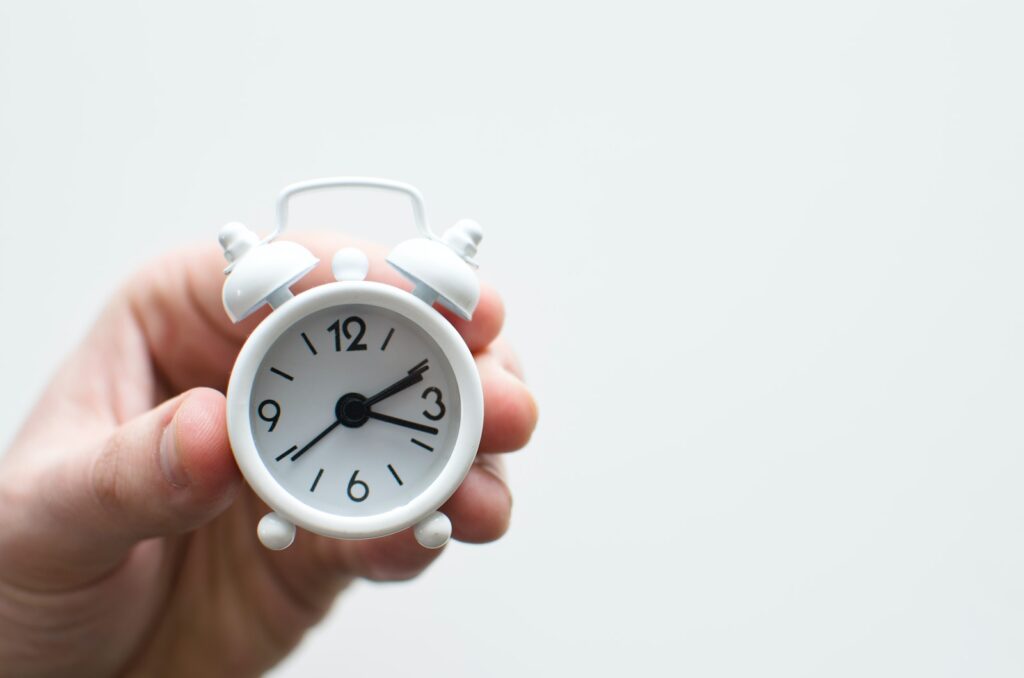Table of Contents
Key Takeaway:
- Establishing a consistent morning routine is important for improving productivity and overall wellness.
- A good night’s rest is a crucial component to a productive morning routine, which includes winding down at the end of the day, turning off electronics at a set time, and setting an appropriate alarm clock.
- To avoid hitting snooze, try counting to five or keeping slippers near your bed to motivate yourself to start the day.
- Creating time for personal activities is important in a morning routine; being intentional about when to wake up and setting aside enough time for personal activities will improve overall productivity.
- Staying hydrated in the morning routine has benefits, such as drinking a full glass of water upon waking up and combating dehydration from caffeinated drinks.
- Enjoying the morning routine can be achieved through appreciating aromatic beverages, spending time with family or pets, and practicing mindfulness before starting the day.
- Preparing a healthy breakfast is necessary for a productive day, and can be simplified through meal prepping.
- Implementing self-care into the morning routine can include defining self-care for oneself and creating a self-care routine.
- A self-care routine can support work-life balance as it improves overall well-being and helps to reduce stress throughout the day.
Importance of a morning routine for productivity and wellness
Starting the day with a well-planned morning routine is crucial for individuals to enhance both their productivity and wellness. Following a consistent morning routine helps to create a sense of structure and predictability in one’s day, leading to a heightened state of focus and clarity. This routine can be customized to suit individual needs and preferences, whether it involves exercise, meditation, or simply organizing one’s day. By establishing a morning routine, individuals are more likely to achieve their goals and maintain a healthy work-life balance. It is important to note that developing a morning routine is a process that requires patience, commitment, and experimentation to achieve optimal results.
Incorporating a morning routine into one’s lifestyle can lead to increased productivity and overall well-being. This routine can help to set the tone for the day, allowing individuals to prioritize their tasks and responsibilities with greater efficiency. A well-planned morning routine can also serve as a form of self-care, promoting a positive mindset and reducing stress levels. By making time for activities such as exercise, a healthy breakfast, or mindfulness practice, individuals can improve their physical and mental health, resulting in greater levels of productivity and satisfaction throughout the day. Therefore, adopting a morning routine can have a profound impact on one’s life.
To further maximize the benefits of a morning routine, it is recommended to create a schedule and stick to it consistently. This will help to establish a habit that eventually becomes second nature, making it easier to maintain over the long term. Additionally, it is important to be mindful of the time allocated for each activity, ensuring that enough time is given to each to reap their respective benefits. One pro tip for an effective morning routine is to incorporate activities that bring joy and positivity, thereby enhancing motivation to start the day.
In summary, it is evident that establishing a morning routine can have lasting benefits for one’s productivity and wellness. By developing a customized routine, individuals can effectively manage their time, prioritize their responsibilities, and promote self-care. It is highly recommended to adopt a consistent morning routine to maximize the positive impact on daily life.
Tips for getting a good night’s rest

When it comes to creating a productive morning routine, the key often lies in getting a good night’s rest. As someone who struggles with falling asleep, I’ve done my fair share of research and experimentation to find what works best for me. In this part, I’ll share some tips on winding down at the end of the day to promote relaxation and better sleep.
We’ll also discuss the importance of turning off the TV at a set time to avoid overstimulation and setting your alarm clock appropriately to ensure you wake up feeling rested.
So let’s dive in and start with some helpful techniques for winding down before bed.
Wind down at the end of the day
To end the day, it is important to wind down and relax the mind and body. This can be achieved by engaging in activities that bring calmness and peace, preparing oneself for a restful sleep. To wind down at the end of the day, one can consider turning off electronic devices like TVs at a set time, adjusting alarm clocks appropriately, and implementing strategies to avoid hitting snooze. It is essential to maintain consistency by creating time for personal activities before bed and setting intentions on when to wake up. Hydration plays an important role in winding down effectively as drinking a full glass of water upon waking up combats dehydration from caffeinated drinks. Enjoying aromatic beverages like chamomile tea before bedtime or spending quality time with family members or pets can equally contribute to effective relaxation. Practicing mindfulness techniques such as deep breathing exercises provides more benefits. Pro tip: Setting aside designated wind-down activities allows one’s body to recognize it’s almost time for bed, helping them naturally feel tired when it’s time for sleep. Say goodnight to your TV and hello to a better night’s sleep.
Turn off the TV at a set time
To optimize your sleep, it is crucial to engage in a consistent evening routine. This involves setting a precise time to turn off the TV at night. Blue light from electronic devices can delay the onset of melatonin production, interfering with your ability to sleep soundly. By turning off the TV at a set time, you provide space for relaxation and disconnect from digital stimuli.
In addition to diminishing screen time, it’s also important to create an environment conducive to sleep by adjusting lighting and controlling noise levels. Aiming for seven or more hours of sleep each night not only benefits cognitive functioning but also improves overall health outcomes.
Going beyond just turning off the TV, setting up a bedtime routine also facilitates restful slumber. Engage in calming activities such as reading a book or taking a warm bath as part of your routine.
A study carried out by the American Academy of Sleep Medicine stated that adults who get less than seven hours of sleep per night are more likely to have chronic health conditions including obesity, diabetes, high blood pressure, heart disease, stroke, and frequent mental distress.
Source: https://www.aasm.org/press-releases/health-advisory-sleep-deprivation-and-chronic-disease-risk/
Setting your alarm is like playing Russian roulette, but instead of a bullet, it’s the fear of being late for work.
Set your alarm clock appropriately
Timing plays an important role in creating a productive morning routine. To ensure that you wake up at the appropriate time, set your alarm clock to suit your schedule. This small but significant step can help you stay on track with your daily activities.
To set your alarm clock appropriately means establishing a specific time to wake up each day and making sure that your alarm is set accordingly. Ensure you have enough time to engage in personal activities that can set the tone for the rest of the day, such as stretching or journaling. By setting your alarm clock appropriately, you will be able to maintain consistency and avoid oversleeping or waking up too late.
Additionally, some tips that may help avoid hitting snooze include placing slippers near the bed or counting to five before getting out of bed. These steps can help prevent procrastination and delay, allowing you to start the day on a more positive note.
It is important to note that this information is based on studies conducted by researchers at Harvard Health Publishing.
Counting to five and keeping slippers nearby might help you avoid the temptation to snooze.
Strategies to avoid hitting snooze
As someone who struggles with oversleeping and procrastination, I’ve found that incorporating simple strategies into my morning routine has been a game-changer for my productivity level throughout the day.
One of the main challenges I face is avoiding the temptation to hit snooze on my alarm clock. In this portion of the article, we’ll explore a few tried and true methods for overcoming the snooze button, including counting to five and keeping slippers nearby for motivation. These strategies are backed by scientific research and can help you kickstart your day on the right foot.
Counting to five
Counting down to alleviate snooze button dependency:
- Set the alarm clock in advance to account for the snooze button’s temptation.
- Keep a pair of cozy slippers near your bed to encourage rolling out onto the floor and standing up to start your day.
- Counting down from five encourages forward momentum, replacing opportunity for indecisiveness with actionable items.
- Implement a routine that prioritizes the benefits of consistent use of time management tactics.
We have covered the significance of creating good morning habits during paragraph 2. Besides, counting down is an effective strategy to combat hitting snooze repetitively in paragraph 3.
In ancient times, samurai warriors woke up early and counted down from five before getting out of bed and starting their day. This enabled them to take charge of their lives every day by using a motivated, proactive approach.
If you’re someone who hits snooze, keep your slippers near your bed – the shock of cold floors will get you up in no time!
Keeping slippers near your bed
One effective way of ensuring a productive morning routine is to keep your slippers near your bed. This simple habit saves time and effort in the morning, making it easier to get out of bed and start the day. Additionally, having slippers nearby means you can avoid walking on cold floors, which can negatively impact your mood and motivation.
To further optimize this habit, choose a comfortable pair of slippers with good arch support to help prevent foot pain. Additionally, consider keeping a cozy robe or sweatshirt within reach for added warmth and comfort.
By implementing this routine, individuals are more likely to wake up on time and feel motivated to start their day without any discomfort or interruption.
If you don’t have time for a productive routine, you don’t have time for success.
Creating time for a productive routine

As someone who’s not a natural morning person, I’ve found that implementing a regular morning routine has helped me to approach the day with more productivity and focus. In this part of the article, we’ll explore the importance of creating time for a productive routine to start the day off on the right foot. We’ll discuss two essential aspects of a morning routine: being intentional about when to wake up, and setting aside enough time for personal activities. Let’s dive in and see how these two practices can help us better prioritize our time and energy.
Being intentional about when to wake up
One way to improve productivity and wellness is by being intentional about the time you wake up. By setting a consistent waking time, your body can develop a natural rhythm that helps with energy levels and mood throughout the day. Additionally, waking up at the same time each day can regulate your sleep cycle and help you fall asleep more easily.
To establish a routine, it’s important to consider personal schedules and obligations. Set a wake-up time that allows for enough time to complete daily tasks before starting work or other commitments. Stick to this schedule on weekdays and weekends to maintain consistency.
To make waking up easier, create an environment conducive to sleep. Avoid caffeine or alcohol before bed, maintain a comfortable room temperature, and eliminate distracting noises or lights.
Furthermore, establishing routines for bedtime and waking up is not going to happen overnight but will take some adjustment period of experimentation.
Remember that everyone’s optimal sleeping pattern varies by age closely depending on age groups from 18-30 years of age averaging 7-9 hours per night as required sleep hours, then reduce gradually. Sticking with a set schedule will promote healthy habits in your overall lifestyle while also boosting productivity levels during the day.
Finding time for personal activities in the morning routine is like trying to catch a unicorn, but it’s worth the effort.
Setting aside enough time for personal activities
To fully maximize our productivity and wellness, we must consider the importance of setting aside ample time for personal activities. Personal activities don’t just refer to leisurely pastimes but also include self-care, social connections, hobbies, or anything else centered around our well-being. Creating adequate time is critical to making these activities not feel rushed or unimportant, ultimately impacting our overall mood and health positively.
One way to ensure that we create enough time is by scheduling it into our morning routine. By organizing each day with an intentional plan that includes personal activities, even something simple like reading a book or painting, we allow ourselves to have moments for relaxation before starting the day’s work. Doing so can lead to higher productivity levels in the long term as well, as taking breaks regularly can help us avoid burnout.
Moreover, when creating designated blocks of time for personal activities from scratch, it’s helpful to take stock of how you tend to spend your days presently. After analyzing downtime habits carefully and prioritizing what’s essential for your mental health and well-being, schedule this valuable ‘me-time’ into your day strictly. Doing so will allow you to not only see results in terms of wellness but also build healthy habits that prioritize self-care on a regular basis.
Remember folks, starting your day with a glass of water is like giving your body a wake-up call, just make sure it’s not a collect call from the bathroom.
Importance of hydration in the morning routine

Incorporating hydration into your morning routine is crucial for kickstarting a productive day. Did you know that the human body can lose up to a liter of water while we sleep? That’s why drinking a full glass of water upon waking up is an impactful way to rehydrate and elevate cognitive function. Moreover, many of us reach for caffeinated beverages like coffee or tea to energize us in the morning, but these can contribute to dehydration. Hence, combating dehydration from such drinks is an important sub-section we’ll be discussing in this piece. With that said, let’s explore why hydration is vital for a productive morning routine.
Drinking a full glass of water upon waking up
Upon waking up, it is essential to remain hydrated throughout the day. Therefore, drinking a full glass of water in the morning can positively influence your health and productivity.
Here’s a 4-Step Guide on how to drink a full glass of water upon waking up:
- Place a glass of water by your bedside before you sleep.
- Drink the entire glass of water within ten minutes of waking up.
- Wait for at least thirty minutes after drinking the water before breakfast.
- Repeat this process daily for maximum benefits.
It is also vital to note that drinking caffeinated drinks may lead to dehydration, so consider curtailing or complementing them with hydrating activities like drinking water in the morning.
Additionally, incorporating mindfulness activities into your routine such as meditation or stretching could enhance your overall experience further.
Drinking a full glass of water upon waking up is an ancient practice dating back centuries ago in Japan and is called ‘The Water Cure.’ This tradition stems from Japanese habits that focus on minimizing illness by routine lifestyle practices like staying hydrated.
Saving yourself from the caffeine crash by staying hydrated – it’s like killing two birds with one stone, except you’re keeping yourself alive instead.
Combating dehydration from caffeinated drinks
Caffeinated drinks and dehydration can be a challenging combination, but there are ways to combat the issue at hand. As we know, high caffeine intake can cause the body to lose water through urine more fiercely, leading to dehydration.
- Replace caffeinated beverages with water or sugar-free electrolyte-rich drinks.
- Limit caffeine intake by reducing frequency and quantity.
- Avoid consuming these drinks before sleeping hours.
- Educate yourself about the benefits of hydration by consulting professionals.
- Get your daily recommended hydration from fruits, veggies, and other healthy sources
We must understand that combating dehydration from caffeinated drinks is not an easy feat, but it is worth it for our physical vitality.
Incorporating non-caffeinated fluids into our diet can significantly reduce the adverse effects. It’s all about being mindful of how many caffeinated drinks you’re consuming per day to determine whether decreasing your intake is feasible.
I once heard a story about a person who used to consume ten cups of coffee throughout their day. They put constraints on themselves by slowly cutting back their intake daily and replacing each removed cup with a glass of water rich with electrolytes. Within one month, they went down to two cups a day while keeping themselves hydrated throughout the day.
Start your day off right by sipping on your favorite drink and cuddling with your furry friends, because mornings are better enjoyed with a little bit of love and caffeine.
Enjoying the morning routine
As someone who struggles with being a morning person, it took me a long time to appreciate the benefits of setting aside time for a morning routine. But now, I can truly say that taking the time to create and enjoy a morning routine has been life-changing. In this portion, we’ll discuss the sub-sections of enjoying a morning routine, including savoring aromatic beverages, spending quality time with loved ones, and practicing a bit of mindfulness before immersing ourselves in the day ahead. Let’s dive into these simple but effective practices that can positively impact our day-to-day lives.
Appreciating aromatic beverages
Starting your day by appreciating aromatic beverages can have benefits beyond just enjoying the taste. Aromatherapy plays an essential part in our daily rituals and has been shown to improve mood and reduce stress levels. Whether it’s a cup of coffee, tea, or warm milk, the aroma triggers positive neurological responses helping you prepare for an energetic workday.
Take the moment to savor your beverage mindfully. Breathe in deeply and let it enliven your senses before taking a sip. This little exercise can help you build mindfulness into your routine, improving focus on making optimal use of the morning hours ahead.
Additionally, if you want to make this a more delightful experience, try exploring new blends or brewing techniques. New flavors can awaken your taste buds and excitement while trying innovative brewing techniques such as pour-over or French press can add a touch of sophistication to spice up your morning routine.
Exploring different aromatic beverages may not be everyone’s cup of tea, but there is no harm in trying something new each week. It might even turn out that discovering one’s favorite brew has been long overdue- enabling one to save time ordering regular beverages in cafes.
Lastly, sharing this moment with people or pets close to you over some light-hearted conversations is another way to create fond memories whilst starting the day freshly invigorated – fostering positive relations with those around you amidst busy schedules. Why be productive alone when you can enjoy your morning routine with the company of loved ones (or pets that pretend to love you)?
Spending time with housemates, family, or pets
Connecting with loved ones or pets can bring joy and a sense of belonging. It is essential to make time for social bonding while crafting a morning routine. This could involve sharing breakfast, catching up on the events of the previous day, or playing with your pets.
A crucial aspect that should not be overlooked is building meaningful connections by actively listening and engaging in each other’s stories and interests. It helps strengthen emotional intimacy, leading to better relationships outside the home.
Spending quality time and creating memories also contributes to improved mental health, increasing positivity and decreasing stress levels throughout the day. Such healthy relationships serve as an emotional anchor to keep people grounded during challenging times.
The beautiful thing about spending time with family, pets, or housemates is that it is adaptable to different lifestyles since it can include various activities like exercise or meditation before breakfast while still fulfilling the need for social connection.
Start your day by practicing mindfulness, because a clear mind leads to a productive morning routine.
Practicing mindfulness before starting the day
Beginning the day with mindfulness practices is crucial for setting a tone of calm and focus for practitioners. This can involve breathing exercises, visualization techniques, or meditation. By engaging in such practices, practitioners can increase their self-awareness, identify goals, prioritize tasks, and shift focus away from intrusive thoughts.
Additionally, practicing mindfulness before starting the day helps individuals to explore creative solutions to challenges they may face throughout the day as they break free from habitual ways of thinking. A principal aspect of mindfulness practice involves acknowledging emotions without judgment or reactivity. This approach cultivates kindness towards oneself; one can integrate self-care within the routine by devoting time to activities like exercise and journaling.
A fulfilling morning routine is inherently tied with feeling energized and enthusiastic about transitioning into a productive workday. By placing attention on mindfulness practice in the morning routine helps to create space for mental clarity throughout the day ahead.
Who says a healthy breakfast can’t be easy? Stock up on fresh fruits and nuts and you’re good to go!
Preparing a healthy breakfast

Mornings are the most critical time of the day for me. Waking up energized and establishing a routine sets the tone for a productive day ahead. Preparing a healthy breakfast is an important part of my morning routine. It’s not just about what I eat but how I prepare it that helps me start my day on the right note.
In this part of the article, I’ll share how the simplicity of eating healthy can improve your productivity. We’ll also talk about how meal prepping can make your morning routine seamless and convenient, which can help you save time and allow you to focus on other important tasks.
The simplicity of eating healthy
Eating healthy can be simple and uncomplicated by implementing a few changes in your daily routine. Consuming nutrient-rich foods like fruits, vegetables, lean protein, and whole grains can support better physical health. Meal prepping and planning ahead can simplify the process and save time. By identifying healthier alternatives to processed foods that are high in salt, sugar, and fat, you can achieve a nutritious diet with minimal effort.
Additionally, learning how to cook simple recipes can boost confidence in culinary skills while being mindful of ingredient choices. The simplicity of eating healthy means making conscious decisions about food choices and portion sizes for well-balanced meals.
One powerful strategy is separating emotions from eating habits; it helps avoid stress eating or using food as a coping mechanism for negative feelings. Embracing intuitive eating habits by avoiding restrictive diets that eliminate entire food groups allows greater freedom in choosing healthier options.
Pro Tip: Planning meals ahead of time reduces decision fatigue and provides more opportunities to incorporate healthy options into your diet.
Get ready to conquer the week by meal-prepping like a boss.
Meal prepping for productivity
When it’s about optimizing productivity, meal prepping could be an efficient tool. It saves time and creates a stress-free environment by creating healthy and nutritious food in advance. Here are some points to consider:
- Before meal prep, make a list of your favorite meals to save time.
- Choose healthy recipes that can provide essential nutrients.
- Cook for an entire week on weekends or plan meals for the following day.
- You can also use leftovers creatively to reduce food waste.
- Invest in proper storing equipment such as containers and labels.
- Consider trying new cuisines and experimenting with recipes to keep it exciting.
In addition, meal prepping helps to control portion sizes. Keeping track of what you eat could help you stick to a balanced diet, preventing overeating during busy hours.
To make meal prepping more effective, try investing in grocery shopping lists or grocery delivery apps. This way, all required ingredients would be available at home without any rush-hour hassle.
Lastly, meal prepping helps you become more self-reliant in preparing meals. With perseveration comes appreciation, and by setting aside time for breakfast/lunch preparation daily, not only does it develop into a routine but improves competency in cooking.
Remember, self-care is not selfishness, it’s essential for a well-balanced and productive life.
Implementing self-care
As someone who’s prone to procrastination, I’ve realized the crucial role that a morning routine plays in starting my day with focus and mindfulness. It’s easy to get swept into the chaos of the daily grind and forget to take care of oneself.
In this upcoming section, we’ll be discussing the value of implementing self-care into your morning routine. First, we’ll explore what self-care means on an individual level and why it’s crucial to tailor self-care practices to your unique needs. Then, we’ll dive into the practicalities of creating a self-care routine that aligns with your overall goals and values.
Defining self-care for oneself
Self-care is a crucial aspect of maintaining good physical and mental health. Defining self-care for oneself can lead to a better understanding of what practices or activities bring joy and positively impact personal well-being. In order to define self-care for oneself, it’s important to recognize personal preferences and needs. Consider factors such as daily stressors, activities that bring peace, hobbies that bring fulfillment, and anything else that promotes personal growth.
Developing a personalized self-care plan may involve practices like aromatherapy, exercise routines, meditation or mindfulness practices, journaling, or spending time with loved ones. Ultimately, defining self-care for oneself means identifying ways to prioritize one’s own needs and making mindful choices about how to allocate time and energy each day.
It’s important to keep in mind that defining self-care for oneself is a unique and ongoing process. What works exceptionally well one day might not be as effective another day. Consistently checking in with oneself on how certain self-care strategies are working can lead to long-term success in managing stress levels and promoting feelings of well-being.
Pro tip: It may be helpful to consider regularly scheduling time for self-reflection to ensure personal needs are being met adequately within the definition of one’s unique self-care practice.
Self-care isn’t selfish, it’s necessary – these ideas will help you create a routine that puts yourself first.
Ideas for creating a self-care routine
Self-care routine helps one remain focused, boost creativity and productivity. Ideas for creating a self-care routine are diverse based on personal preferences.
- Design an activity that boosts emotional well-being
- Identify moments reserved for yourself every day
- Engage in physical exercises to help the body release tension and waste.
It is essential to note that holistic self-care involves taking care of the mind, soul, and body. Once these areas are perfectly catered to, a productive lifestyle follows.
Incorporate enjoyable ideas for creating a self-care routine that promotes wellness holistically.
For instance, enjoy soothing hot showers followed by scent-related activities such as aromatherapy candles or diffusers. Taking care of oneself boosts confidence levels hence gaining more energy and concentration, resulting in productivity.
Supporting work-life balance with a self-care routine

Self-care routine plays a significant role in supporting work-life balance. Structuring a productive morning routine can help achieve desirable and fulfilling results. Starting with a healthy breakfast and incorporating exercise, meditation, and visualization techniques can set the tone for a productive day. Consistency is the key to maintaining a self-care routine, which is crucial for overall well-being. By prioritizing self-care and developing a morning routine, individuals can efficiently manage their time and enhance productivity.
Pro Tip: Preparing a to-do list before going to bed can help reduce stress and increase efficiency the next day.
Five Facts About Creating a Morning Routine for a Productive Day:
- Getting a full eight hours of sleep each night is crucial for productivity.(Source: Team Research)
- Hitting the snooze button can be detrimental to your morning routine.(Source: Team Research)
- Drinking a full glass of water when you first wake up is a crucial component of a great morning routine.(Source: Team Research)
- Creating a routine of self-care can support a healthy work-life balance and reduce stress.(Source: Team Research)
- Waking up earlier and giving yourself enough time to complete your morning routine can encourage productivity and efficiency throughout the day. (Source: Team Research)
FAQs about How To Create A Morning Routine For A Productive Day
How can I incorporate exercise into my morning routine for a productive day?
To incorporate exercise into your morning routine, start with a quick workout at home or a yoga session. You can also go for a quick walk or run outside to get your blood pumping. Make sure to stretch and warm up before starting any exercise and adjust the duration and intensity based on your fitness level.
Why should I avoid social media and electronics in the morning?
It’s important to avoid social media and electronics in the morning because they can be distracting and take away from your focus and productivity. Instead, try to engage in activities that promote relaxation and mental clarity, such as meditation or reading.
What are some examples of podcasts to listen to during my morning routine?
Podcasts can be a great way to stimulate your mind and encourage productivity in the morning. Some examples of podcasts to listen to include “The Tim Ferriss Show,” “Happier with Gretchen Rubin,” and “The Daily.” Choose a podcast that aligns with your personal interests and goals.
How can I optimize my morning routine for a balanced and productive day?
You can optimize your morning routine for a balanced and productive day by incorporating self-care activities, such as taking a shower or applying a face mask, setting intentions for the day, and prioritizing tasks based on their importance. Additionally, avoid multitasking and make sure to stay hydrated, and fuel your body with a healthy breakfast.
Is it important to establish a consistent morning routine for increased productivity?
Yes, establishing a consistent morning routine can increase productivity and help you stay focused throughout the day. By creating a structured routine that works for you, you can set yourself up for success and reduce stress and anxiety.
What are some nutrition tips for a healthy morning routine?
To support your overall health and productivity, it’s important to fuel your body with the right nutrients in the morning. Some examples of healthy breakfast options include oatmeal, smoothies, whole grain toast with avocado, and eggs. Try to avoid sugary cereals and processed foods, and make sure to stay hydrated with water or herbal tea.









